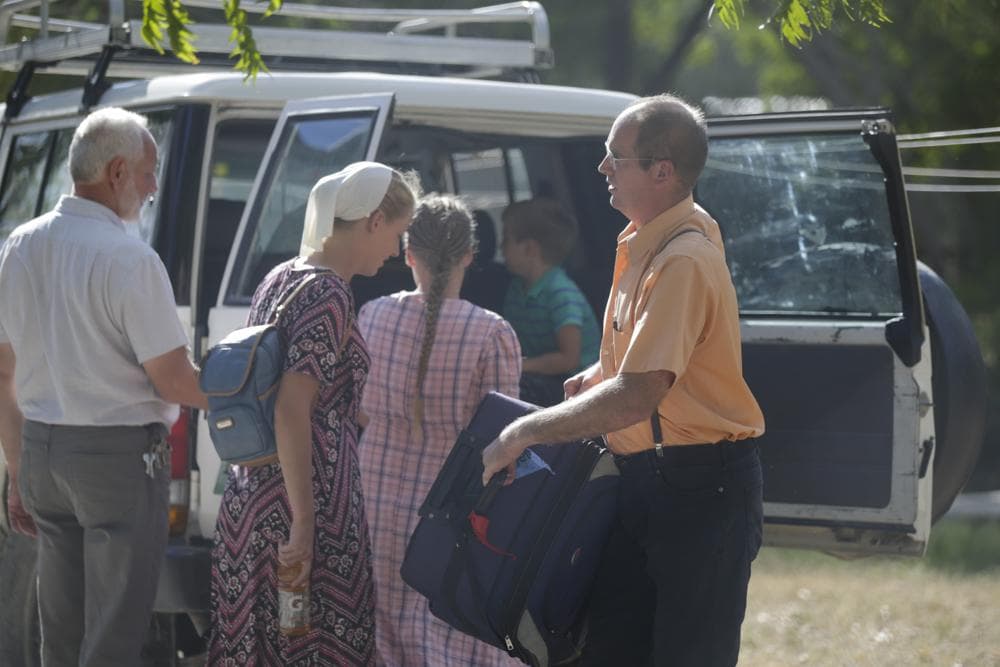All the former hostages from a U.S.-based missionary group kidnapped in Haiti have been flown out of the country after a two-month ordeal, the leader of their Ohio-based missions organization said Friday, as he also extended an offer of forgiveness to their captors.
David Troyer, general director of Christian Aid Ministries, said in a video statement that a U.S.-flagged plane left the Caribbean nation Thursday afternoon carrying the last 12 kidnapped missionaries, hours after they were freed earlier in the day.
“Everyone including the 10-month-old baby, the 3-year-old boy and the 6-year-old boy seem to be doing reasonably well,” Troyer said.
The last releases came two months to the day after the group of 16 Americans and one Canadian — including five children — were kidnapped by the 400 Mawozo gang, which initially demanded millions of dollars in ransom. The other five had been freed earlier.
Troyer did not comment on the circumstances of the release, such as whether ransom was paid or a rescue effort was involved, but expressed thanks to “the U.S. government and all others who assisted in the safe return of our hostages.”
“Thank you for understanding our desire to pursue nonviolent approaches,” he added, without elaboration.
Based in Berlin, Ohio, Christian Aid Ministries, or CAM, is supported and staffed by conservative Anabaptists, a range of Mennonite, Amish and related groups whose hallmarks include nonresistance to evil, plain dress and separation from mainstream society.
In keeping with Anabaptist teaching, which puts a premium on forgiveness, Troyer offered conciliatory words to the captors.
“A word to the kidnappers: We do not know all of the challenges you face. We do believe that violence and oppression of others can never be justified. You caused our hostages and their families a lot of suffering,” he said. “However, Jesus taught us by word and by his own example that the power of forgiving love is stronger than the hate of violent force. Therefore, we extend forgiveness to you.”
Troyer said the hostages had “prayed for their captors and told them about God’s love and their need to repent.”
The missionaries were abducted Oct. 16 shortly after visiting an orphanage in Ganthier, in the Croix-des-Bouquets area, where they verified it had received aid from CAM and played with the children, Troyer said.
“As they became aware of what was happening at the time of capture, the group began singing the chorus, ‘The angel of the Lord encampeth round about them that fear Him, and delivereth them,’” Troyer said, quoting from the biblical book of Psalms. “This song became a favorite of theirs, and they sang it many times throughout their days of captivity.”
The hostages remained together as a group throughout, he said, in prayer, in song and encouraging each other.
Troyer said CAM workers were aware of dangers in Haiti, where gang activity and kidnappings have been on the rise.
But the organization often works in such perilous places precisely because “that is usually where the biggest needs are,” he added.
CAM hopes to continue working in Haiti, Troyer said, while acknowledging that it will need to bolster security protocols and “better instruct our people about the dangers involved.”
Authorities have said 400 Mawozo was demanding $1 million per person in ransom, although it wasn’t clear if that included the children. The gang’s leader had threatened to kill the hostages unless his demands were met.
Also Friday, a meeting including representatives of 14 countries, various international organizations and Haitian Prime Minister Ariel Henry produced broad commitments to address security and the political and economic situation in the impoverished Caribbean nation, according to a top U.S. diplomat.
Brian A. Nichols, assistant secretary at the State Department’s Bureau of Western Hemisphere Affairs, said on a conference call that the U.S. government plans to send experts to train the Haitian National Police SWAT team.
In another pledge, Japan promised $3 million in aid including for the construction of police housing and facilities.
Nichols said there was discussion of some nations potentially deploying police to Haiti for activities such as training or mentoring local officers, though that would require more discussion first. He said there was broad agreement that the security situation in the country is a policing challenge, not a military one.
Nichols did not provide details on how the hostages were freed, citing respect for their privacy. Asked about rumors that a ransom was paid, he declined to comment other than to say “the United States government does not pay ransom for hostages.”













